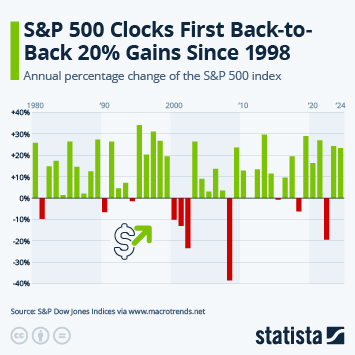Saint Patrick was not only a fifth-century bishop and missionary instrumental in converting the Irish to Christianity, but he is also the namesake of one of the most important cultural celebrations on the island. St. Patrick's Day, or Lá Fhéile Pádraig as it's called in Irish, occurs on the alleged death date of the island's patron saint on March 17.
Originally a religious holiday, the Irish diaspora in the United States turned the occasion into a celebration largely divested from the liturgy and rather connected to wearing green and drinking Guinness. The commercialization of the holiday is also apparent in total and household spending in the U.S. connected to St. Patrick's Day.
According to estimates by the National Retail Foundation (NRF), overall spending for St. Patrick's Day in the United States is bound to cross the seven-billion mark for the first time in 2024, increasing by 57 percent compared to the 2015 spending numbers. Per-household spending is also up significantly compared to ten years prior, although this figure hasn't increased much since 2020.
Data from the NRF survey also shows that 62 percent of respondents plan to celebrate the holiday in one way or another. 82 percent of those celebrating plan on wearing green, 29 percent want to cook a special dinner and 27 percent aim to spend St. Patrick's Day at a party in a bar or restaurant.





















